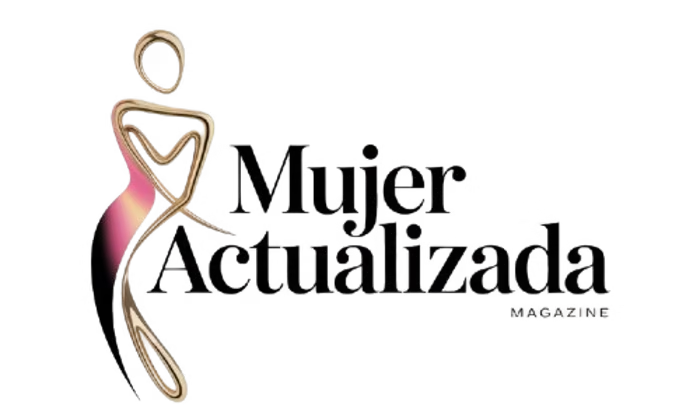Exploring Motherhood and Family Life for Modern Young Adults

In a society teeming with a multitude of roles and responsibilities, the facets of motherhood and family life serve as life's enriching experiences that form the crux of human existence. Shrouded in an amalgamation of challenges, complexities and moments of sheer joy, motherhood unfolds itself as an evocative journey full of transformations, while family life represents the intricate web of shared experiences, bonding, and evolving dynamics. The race between career progression and motherhood further adds to this intriguing maze, calling for ingenious strategies to maintain equilibrium. Understanding the role of effective parenting in shaping a child's future amidst the changing societal paradigms, and embracing the emerging trends in family configuration and motherhood are instrumental in the holistic comprehension of these profoundly impactful aspects of life.
Understanding Motherhood
Understanding Motherhood: The Core Concept
Motherhood is not just a biological function but a complex interplay of emotions, social norms, and personal experiences. Biologically, it includes the process of conceiving, pregnancy, childbirth, and breastfeeding. The biological aspects of motherhood are accompanied by intense emotional experiences from joy, love, and contentment to anxiety, stress, and sometimes guilt or depression.
Emotionally, motherhood is associated with nurturing, protecting, and caring for a child. Maternal emotions are heavily influenced by hormones, starting with pregnancy, through childbirth, and into the post-partum period. These emotions can produce profound feelings of connection and attachment to the child.
Socially, motherhood requires a woman to adopt new roles and responsibilities, which often involve making sacrifices and unselfish decisions for her child's welfare. Societal expectations and cultural norms play a huge role in shaping a mother's behavior, self-perception, and experiences.
Transitioning into Motherhood
Transitioning into motherhood is a unique experience for every woman. It often entails considerable changes in lifestyle, body image, relationships, and identities. New mothers often experience 'matrescence,' a transformative phase much like adolescence, as they adjust and adapt to their new roles and responsibilities. Sleepless nights, constant feeding, nappy changes, and baby cares often become a major part of a new mother's daily routine. Mental shifts also occur as new mothers often need to prioritize their child's needs over their own.
During this transition period, support from family, friends, or a mother's group is crucial. This support can ease the process tremendously, reducing feelings of isolation or inadequacy and helping the mother to better adapt to her new role.
Complexities and Challenges of Motherhood
Motherhood is often accompanied by numerous complexities and challenges. Sleep deprivation, physical exhaustion, postpartum hormonal changes, constant worry, and the pressure to be the "perfect" mother can all lead to stress. Balancing professional life with mothering duties can be another major challenge.
Moreover, the idea of 'mom guilt' is a common feeling where mothers, driven by societal standards or personal expectations, often feel guilty that they are not doing enough, not doing things right, or prioritizing their career or personal needs over their child's.
The Experiences and Rewards of Motherhood
Motherhood, despite its challenges, is filled with unparalleled moments of joy and contentment. From witnessing the first steps of a child to hearing their earliest words, simply holding them close can bring immense happiness and satisfaction to a mother's life.
Through this journey, a special bond between a mother and her child is formed. This bond is exceptionally strong, offering a unique sense of enrichment to a mother's emotional state. Additionally, many mothers experience personal growth and a shift in priorities, focusing less on materialistic goals and more on nurturing relationships and creating meaningful experiences.

The Dynamics of Family Life
Navigating Family Bonds and Relationships
Family bonds, the underlying adhesive of a family unit, are created through shared experiences, love, trust, empathy, mutual respect, and clear communication. Relationships within a family structure, whether they be parent to child, grandparent to grandchild, among siblings, or between spouses, are foundational to maintaining a healthy family dynamic. Indeed, the quality of these connections holds a significant impact on an individual's mental, emotional, and physical wellbeing.
Mothers often serve as a fundamental pillar in fostering these bonds within the family unit. With their inherent ability to love, comprehend, demonstrate patience and provide encouragement, they greatly yield to a nourishing family environment. A mother does not only fulfil a nurturing role but she also frequently becomes a confidant and mediator, cultivating trust, open communication, and mutual support among family members.
Communication Patterns in Family Life
Effective and open communication is another major ingredient in successful family life. When family members communicate effectively, they understand each other better, solve problems more efficiently, and foster a harmonious environment. Communication encompasses various forms, including verbal, non-verbal, and listening skills.
A mother plays a pivotal role in fostering effective family communication. She often sets the tone for open discussions, encourages sharing of feelings, and promotes understanding and empathy. A mother's role in strengthening the communication channels within the family cannot be overstated.
Roles of Each Family Member
Each member of a family has a unique role to play, contributing to the overall functioning and harmony of the family. Such roles may include being providers, caregivers, helpers, decision-makers, mediators, or supporters. Mothers often play multiple roles concurrently, such as being caregivers, nurturers, educators, and role models. They are often the strong threads that weave the family together as they balance these roles.
Expectations from each family member need to be clear, realistic, and understood by all. While each member has a defined role, flexibility and adaptability should also be promoted to allow members to support each other during times of need or change.
Dealing with Conflicts
As in any social unit, conflicts are bound to arise in family life. These conflicts may stem from differences in opinions, misunderstandings, miscommunications, or varying needs. Dealing with conflicts healthily is crucial to maintain familial harmony and prevent long-lasting adverse effects.
Mothers, owing to their often central role in the family, are typically at the forefront of conflict management. By modeling respectful communication, promoting problem-solving skills, and initiating open conversations about differences, mothers can effectively help diffuse conflicts and reinforce the value of peace within the family.
Promoting Harmony in Family Life
Promoting harmony within the family is about fostering mutual respect, understanding, love, and support among all family members. This involves activities that encourage bonding such as shared meals, family traditions, outings, and celebrations.
Mothers can be instrumental in promoting harmony by fostering a positive, open, and nurturing home environment where each family member feels valued and heard. They can also play a role in conflict resolution, facilitating open communication, and promoting understanding and respect among family members. This kind of environment is conducive to mutual growth, emotional wellbeing, and the overall happiness of the family.
The intricacies involved in navigating family life is not something to be overlooked. Mothers usually find themselves playing crucial roles in this elaborate balance, providing love, nurturing, guidance, and equilibrium to the overall family structure.

Balancing Motherhood and Career
The Balancing Act: Motherhood and Careers
Managing both motherhood and a professional career form significant parts of a woman's existence, bringing immense satisfaction but also challenges, including stress and pressure. Especially in the current times of dual-career families, this delicate act becomes increasingly complex as mothers must balance their professional commitments while ensuring the wholesome upbringing and welfare of their children.
The Modern Working Mother
For the modern mother, balancing a career and motherhood is often a complex issue that involves dealing with both work and family responsibilities. Typically, mothers deal with issues such as childcare, finding time for children's activities and education, and maintaining an efficient household. Mothers often take on the majority of household duties, even when working full-time, which can lead to feelings of being stretched too thin or overwhelmed.
Maintaining a Healthy Balance
Balancing motherhood and career successfully often requires a strategic approach to managing time and energy. This could involve setting boundaries at work, delegating tasks when possible, and setting aside quality time for family, without the intrusion of work. Self-care is also integral to maintaining a healthy balance as the mother’s mental and physical health is key to doing well in both areas of her life.
Flexible Work Arrangements
Flexible work arrangements are becoming more prevalent and can greatly assist mothers in striking a balance. Options such as telecommuting, part-time work, job-sharing, or flexible hours allow mothers to formulate a work schedule that accommodates their family needs.
Support Systems
The role of support systems in helping mothers balance their career and family responsibilities cannot be overstated. Spouses, extended family, close friends, and employed help (nannies or housekeepers) can provide valuable assistance. Moreover, many companies offer resources such as onsite childcare, maternity and paternity leave programs, and employee assistance programs.
The Role of Employer Policies and Practices
Organizations also play an essential part in enabling mothers to maintain a balance between career and family life. Workplace policies such as paid maternity leave, flexible work hours, possibilities for remote work, and support for children's needs can significantly alleviate some of the challenges faced by working mothers.
Mental Health and Self-Care
Mental health and self-care are crucial components to maintaining a balance between work commitments and family responsibilities. Regular exercise, proper nutrition, sufficient sleep, and time for relaxation are foundational for preserving mental and physical health. Practices such as mindfulness and meditation are also beneficial. Moreover, maintaining a supportive network of friends and family can have a positive impact on mental health and overall well-being.
Wrapping Up
Many mothers, despite facing numerous obstacles, have found a way to maintain equilibrium between their work and family life. By incorporating the right tactics, leaning on support systems, and prioritizing self-care, mothers can derive immense satisfaction from succeeding in these two paramount areas of their lives.

The Role of Parenting in Shaping a Child's Future
Exploring the Influence of Parenting on a Child’s Future
The profound effects of parenting on a child's future cannot be understated. It sets the groundwork for a child's growth, spurring holistic development and equipping them to tackle hurdles they will face as adults. Studies have underlined the considerable effect a child's upbringing has on their cognitive, social, and emotional progression, consequences that linger far into their mature years.
Primary Styles of Parenting
There are a few primary styles of parenting that are universally recognized; these include authoritative, authoritarian, permissive, and uninvolved parenting. Each of these styles is characterized by different behaviors, rules, expectations, and ways of discipline, which directly or indirectly influence a child's behavior, personality, and future success.
Authoritative Parenting
Authoritative parenting is defined by a balance of strict rules and affection. Parents set clear boundaries but also nurture their children's individuality. This parenting style has been linked to highest child competencies and is believed to lead to the most well-rounded adults.
Authoritarian Parenting
On the flip side, authoritarian parents are rigid and punitive while being less responsive to their children's needs. They value obedience and discipline over openness and nurture. This style is often associated with less socially competent children who may succumb to peer pressure easily.
Permissive Parenting
Permissive parenting is where parents are highly responsive but rarely discipline their children. They often act more like a friend than a parental figure. Children of permissive parents may struggle with self-discipline and may turn into entitled adults.
Uninvolved Parenting
Lastly, uninvolved parenting is defined by lack of responsiveness and minimal communication. Parents might cater to a child's basic physical needs but neglect emotional needs. This negligence often leads to children having more issues with self-esteem, performance at school, and forming healthy relationships.
Parenting and Modern Society
In today's society, the concept of parenting has evolved significantly. The rapid technological advancement, surge in dual-career families, and growing recognition of gender equality are transforming the landscape of traditional parenting. These societal changes have given rise to different modes of parenting, such as egalitarian parenting, helicopter parenting, and free-range parenting.
Egalitarian Parenting
The rise in dual-career families and shifting gender roles have led to increasing acceptance of shared parenting, where both parents invest equally in caring and nurturing the children, often referred to as egalitarian parenting.
Helicopter Parenting
On the other extreme are "helicopter parents," those who hover over their children's lives, overseeing every aspect including their education, relationships, and activities. While much debated, this parenting style tends to produce children who may struggle with self-confidence and problem-solving skills.
Free-Range Parenting
Another modern parenting approach is "free-range parenting." This style gives children much more freedom and promotes independence while still providing necessary support and guidance. This approach encourages children to make their own decisions, which can foster a greater sense of responsibility and improve problem-solving abilities.
Summing Up
Summing up, the role of parenting, though multifaceted and demanding, is undeniably crucial to a child's growth and future achievements. As societal norms evolve, a consistent aspect remains that nurturing, supportive, and open communication in parenting forms a robust foundation for children's futures. It is their springboard, molding them into responsible, content, and fruitful adults.

Emerging Trends in Family Life and Motherhood
The Shift away from Traditional Families
Present-day trends depict a decline in the traditional nuclear model of families—a husband, wife, and children. Instead, there's been a rise in single-parent families, blended families, and families with same-sex parents. Adjustments in societal norms, along with legal acceptance of same-sex marriages, have enabled the creation of divergent family structures.
Coming to motherhood, an increasing number of women prefer to postpone having children until later in life or forgo it. These decisions are affected by multiple elements, including career growth, financial stability, and personal choice. As a result, motherhood is no longer universally accepted as a woman's main role, allowing for a broader range of options and personal decisions in charting one's life course.
Increase in Dual-Income Households and Working Mothers.
Economic changes and shifting gender roles have led to a significant increase in dual-income households. More mothers than ever before are engaging in paid work, with the gender wage gap slowly reducing as attitudes and policies around equal pay evolve. This trend impacts family life, as both parents contributing to the financial aspect alleviates economic pressures and allows for a more equal distribution of household responsibilities.
However, this shift also presents challenges around work-life balance for mothers, particularly those who become what is known as the "Sandwich Generation"—caring for both their children and their aging parents.
Advancements in Maternal, Reproductive, and Family Technology.
The boom in technology has played a significant role in motherhood and family life. Advancements in reproductive technology, such as in-vitro fertilization (IVF) and surrogacy, have opened new avenues for individuals desiring children.
Technology has also made it easier to balance career and motherhood. Remote work setups provide an option for mothers to work from home and flexible work hours allow for better planning around family responsibilities. However, the ability to stay digitally connected at all times may also blur the boundaries between professional and personal life, resulting in new strains.
Changes in Parenting Styles.
Parenting styles have evolved significantly over the years and continue to do so with more emphasis on nurturing a child’s individuality, encouraging independence, and promoting open communication. Modern parenting is more child-centered, and parents are investing more time and resources in their children's education and skill-building.
As we move forward, mothers are expected to continue adapting to these ever-changing dynamics of family life, integrating external influences with their own values and beliefs to shape their approach to motherhood in culturally diverse and technologically advanced ways.
Role of Media and Social Platforms in Family Life and Motherhood.
The rise of social platforms has altered the perception and reality of motherhood and family life. Social media provides a platform for mothers to share their experiences, seek advice, and find support, fostering a global community of motherhood. However, it can also place pressure on mothers to attain unrealistic standards as portrayed by polished, often misleading social media representations of motherhood and family life.
These emerging trends illustrate how socio-cultural and technological changes are shaping the notion of motherhood and family life, influencing future perspectives for young adults. As societal norms continue to evolve, so too will the understanding and practice of motherhood.

The essence of motherhood and the dynamics of family life, with their myriad complexities and profound rewards, reflect the vibrant quilt of human existence. As we navigate the intricate journey of balancing career obligations with the joys of motherhood, it becomes essential to comprehend the transformative power of effective parenting on a child's future. In addition, recognizing and adapting to the emerging-and often exciting-trends in family structure and motherhood is key to fostering fulfilling relationships in a rapidly changing societal landscape. The understanding of these dimensions offer vital building blocks for young adults who are teetering on the precipice of life-altering decisions to solidify their grip on the ropes and imbibe the wisdom needed for this eventful journey.
